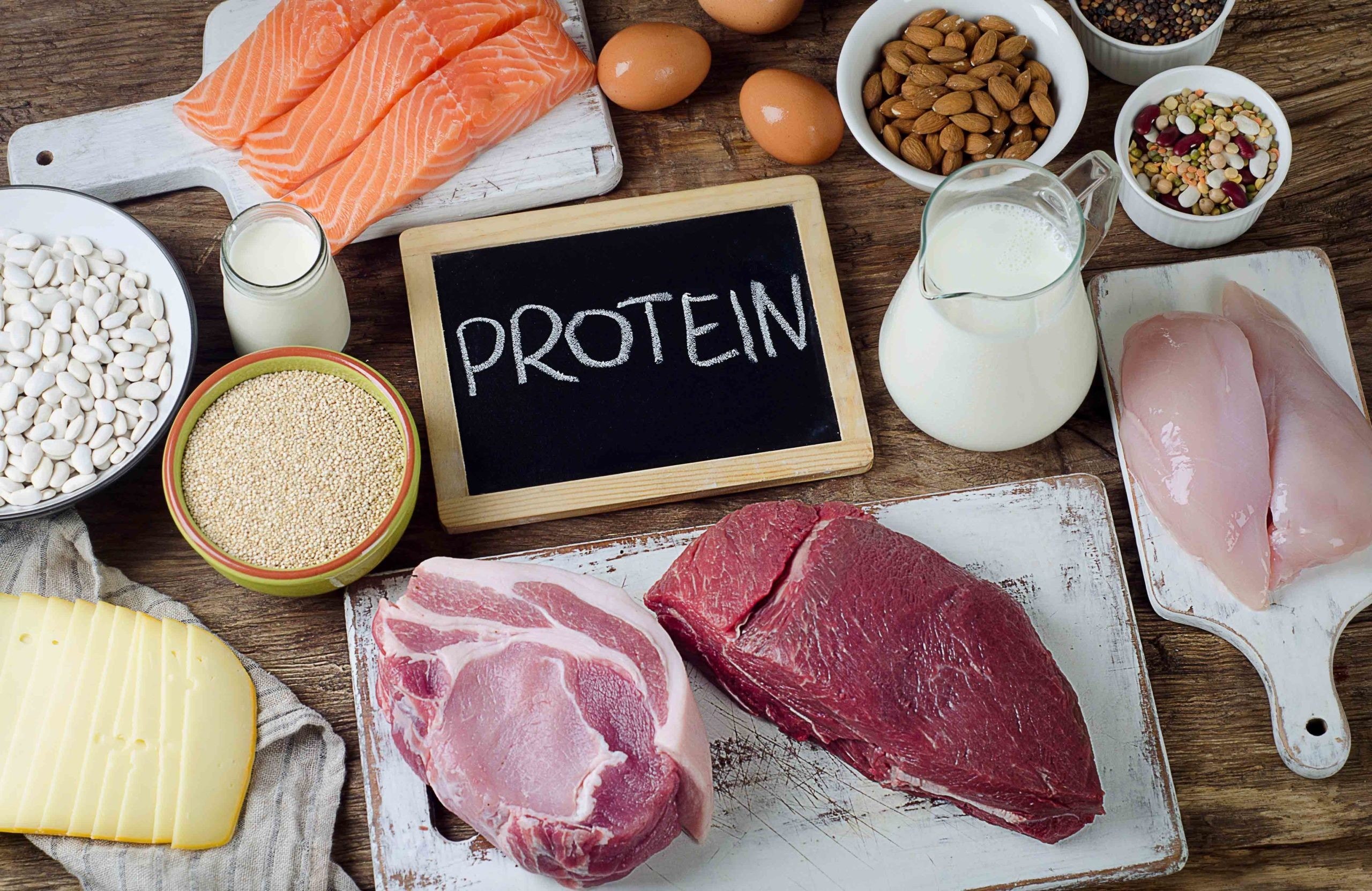Protein is an essential macronutrient vital for building and repairing tissues, supporting immune function, and producing enzymes and hormones. Understanding what foods have protein and incorporating them into your diet is crucial for overall health and well-being.
 protein
protein
Understanding Protein: The Building Blocks of Life
Proteins are constructed from amino acids, which are often described as the building blocks of life. There are about 20 different amino acids, and they combine in various ways to create diverse proteins with unique functions in the body. Your body can synthesize some amino acids (non-essential), but others (essential) must be obtained through your diet.
Why is Protein Important?
Protein plays a key role in numerous bodily functions, including:
- Growth and Repair: Essential for building and repairing tissues, especially muscle.
- Enzyme and Hormone Production: Many enzymes and hormones are proteins, crucial for regulating various bodily processes.
- Immune Function: Antibodies, which help fight infections, are proteins.
- Energy Source: The body can use protein for energy when necessary.
Animal-Based Protein Sources
Animal products are generally considered complete proteins, meaning they contain all nine essential amino acids in sufficient quantities.
Meat and Poultry
Lean meats such as beef, lamb, pork, and poultry (chicken, turkey) are excellent sources of protein. Choose lean cuts to minimize saturated fat intake.
Fish and Seafood
Fish like salmon, tuna, and cod, as well as seafood such as shrimp, crab, and lobster, are rich in protein and often contain beneficial omega-3 fatty acids.
Eggs
Eggs are a versatile and inexpensive source of high-quality protein. They contain all essential amino acids and are easily incorporated into various meals.
alt: Assortment of different types of eggs including duck, quail, chicken and goose eggs.
Dairy Products
Dairy products like milk, yogurt (especially Greek yogurt), and cheese (particularly cottage cheese) provide significant amounts of protein and calcium. Opt for low-fat or non-fat versions to reduce saturated fat intake.
Plant-Based Protein Sources
Plant-based proteins can be excellent options, especially for vegetarians, vegans, or those looking to reduce their meat consumption. While some plant proteins may be incomplete (lacking sufficient amounts of one or more essential amino acids), combining different plant sources can provide all the necessary amino acids.
Legumes and Beans
Legumes such as lentils, chickpeas, kidney beans, and black beans are packed with protein and fiber. They are versatile and can be used in soups, stews, salads, and more.
Nuts and Seeds
Nuts like almonds, walnuts, and cashews, as well as seeds such as chia seeds, flaxseeds, and pumpkin seeds, offer protein and healthy fats. They make great snacks or additions to meals.
:max_bytes(150000):strip_icc()/GettyImages-1139540436-4524b705104a4b77a06c85c3e9f75c71.jpg)
alt: Assortment of nuts and seeds including almonds, pumpkin seeds, walnuts and sunflower seeds.
Soy Products
Soy products like tofu, tempeh, and edamame are complete proteins and offer a substantial amount of protein per serving. They are versatile and can be used in a variety of dishes.
Whole Grains
While grains are primarily carbohydrates, some whole grains like quinoa, brown rice, and oats contain a notable amount of protein.
How Much Protein Do You Need?
The recommended daily allowance (RDA) for protein is 0.8 grams per kilogram of body weight for adults. However, individual protein needs can vary based on factors such as:
- Activity Level: Athletes and highly active individuals may require more protein to support muscle recovery and growth.
- Age: Older adults may need more protein to prevent muscle loss (sarcopenia).
- Health Conditions: Certain medical conditions may affect protein requirements.
- Pregnancy and Breastfeeding: Pregnant and breastfeeding women have increased protein needs.
Tips for Incorporating More Protein into Your Diet
- Start with Breakfast: Include protein-rich foods like eggs, Greek yogurt, or a protein smoothie in your breakfast.
- Snack Smart: Choose protein-packed snacks like nuts, seeds, or a hard-boiled egg.
- Add Legumes to Meals: Incorporate lentils, beans, or chickpeas into soups, salads, or side dishes.
- Choose Lean Meats: Opt for lean cuts of meat and poultry.
- Don’t Forget Dairy (or Alternatives): Include milk, yogurt, cheese, or fortified plant-based alternatives in your diet.
The Importance of a Balanced Diet
While protein is crucial, it’s essential to consume it as part of a balanced diet that includes a variety of fruits, vegetables, whole grains, and healthy fats. Relying solely on protein supplements is not recommended; whole food sources provide additional nutrients and benefits.
Conclusion: Prioritizing Protein for Optimal Health
Knowing what foods have protein and making conscious choices to include them in your diet can significantly contribute to your overall health. Whether you prefer animal-based or plant-based sources, incorporating a variety of protein-rich foods into your meals ensures that you meet your daily protein needs and support your body’s essential functions. Remember to consult with a healthcare professional or registered dietitian for personalized dietary advice.
